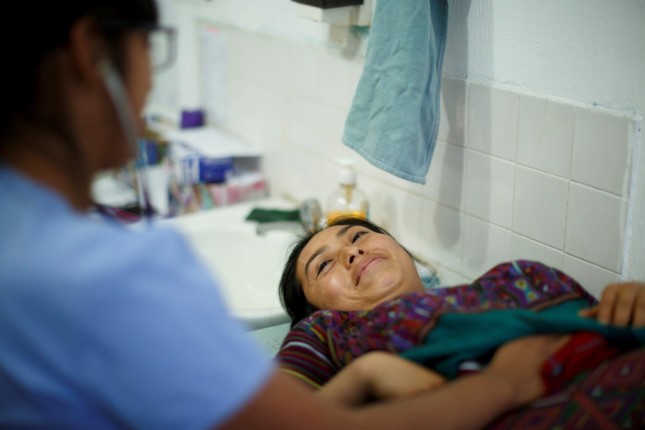-
China vs. United States: Competition Over Rare Minerals Ratchets Up
›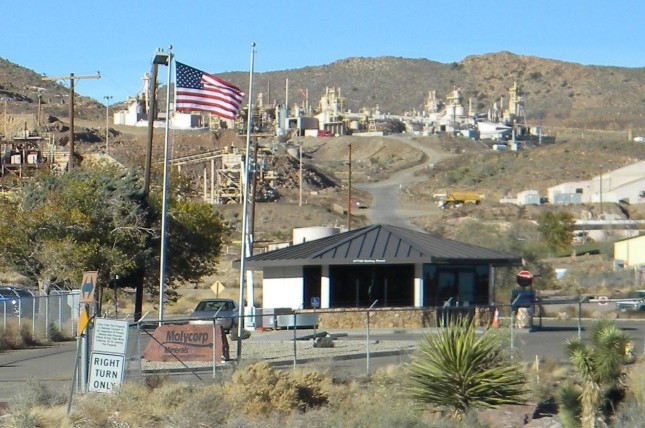
“Historically, resource conflicts have often centered on fuel minerals, like oil. Future resources conflicts may however focus more on competition for non-fuel minerals that enable [modern] technologies,” said Andrew Gulley, Mineral Economist at the United States Geological Survey. America’s 2018 National Defense Strategy says that great power competition is the country’s most important defense challenge. Its key competitor for resources is China. Gulley was among several experts gathered at New America on September 20 to discuss the new competitive space and prospects for conflict or cooperation.
-
Eliane Razafimandimby: Improving the Quality of Maternal and Child Care
› “Even in a weak system without a quality improvement structure, it is possible to support district managers and facility providers to measure and improve quality care,” said Eliane Razafimandimby, Chief of Party of USAID’s flagship Maternal and Child Survival Program (MCSP) in Madagascar, at a recent Wilson Center event on improving the quality of reproductive, maternal, newborn, and child healthcare (RMNCH).
“Even in a weak system without a quality improvement structure, it is possible to support district managers and facility providers to measure and improve quality care,” said Eliane Razafimandimby, Chief of Party of USAID’s flagship Maternal and Child Survival Program (MCSP) in Madagascar, at a recent Wilson Center event on improving the quality of reproductive, maternal, newborn, and child healthcare (RMNCH). -
How to Value Unpaid Care Work: The $10 Trillion Question
›
In Judy Brady’s iconic essay, “I Want a Wife,” the feminist activist enumerates the dozens of practical and emotional tasks wives perform as a matter of duty. At the end, she asks: “My God, who wouldn’t want a wife?”
-
Bangladesh and Pakistan: Demographic Twins Grow Apart
›
While the World Population Prospects—the UN Population Division’s demographic estimates and projections—will never land on anyone’s non-fiction best-seller list, the latest version holds some noteworthy true stories. And the most remarkable demographic story of all may be Bangladesh’s.
-
Ambassador David Balton on Combating Illegal, Unauthorized, and Unregulated Fishing
›
“The world’s ocean is not in good shape,” said Ambassador David Balton, testifying before the U.S. Senate Subcommittee on Oceans, Atmosphere, Fisheries, and Coast Guard, on September 18. Ambassador Balton is a Senior Fellow with the Wilson Center’s Polar Initiative. As former Deputy Assistant Secretary for Oceans and Fisheries in the Department of State, he coordinated U.S. foreign policy concerning oceans and fisheries, as well as issues relating to the Arctic and Antarctica. According to Balton, the ocean “faces three serious and interrelated challenges: unsustainable fisheries, marine pollution, and serious effects caused by climate change and related challenges such as ocean acidification.”
-
Everybody Counts: Saving the World One Condom at a Time
› Can we save the world one condom (or birth control pill) at a time? The third episode of Everybody Counts, hosted by Jennifer D. Sciubba, a professor of political demography at Rhodes College, makes the case that family planning is the foundation of peace and security by highlighting the links between population growth and political instability.
Can we save the world one condom (or birth control pill) at a time? The third episode of Everybody Counts, hosted by Jennifer D. Sciubba, a professor of political demography at Rhodes College, makes the case that family planning is the foundation of peace and security by highlighting the links between population growth and political instability. -
China Is Winning the Race for Water Security in Asia
›
Great power competition in Asia is not only about control of critical waterways in the South China Sea, but also about who controls Asia’s fresh water. The future of Asia’s water—upon which about four billion people depend—lies in China’s hands. Through its presence in Tibet, China controls the headwaters of ten of the eleven major rivers of Asia. So far, China has taken a relatively cooperative approach to sharing water with its neighbors as part of the systematic consolidation of its “soft power” over downstream countries. But climate change and rapid growth are threatening to upset this delicate diplomatic balance. What happens when China’s own thirst outpaces its resources? And how will China’s choices affect U.S. interests in the strategic Asia-Pacific region?
-
Saving Lives: Focusing on Outcomes to Improve Maternal and Newborn Healthcare Quality
›
Poor quality care is now a bigger barrier to reducing mortality than insufficient access to healthcare, said Dr. Margaret Kruk, Chair of The Lancet Global Health Commission on High Quality Health Systems in the Sustainable Development Goal Era. She spoke at a recent Wilson Center event on strategies to improve and sustain high-quality reproductive, maternal, and newborn care at scale. “We estimate that 8.6 million lives are lost every year due to lack of access to high quality care, and of that 8.6 million, five million lives are lost by people who have already reached out to the health system.”
Showing posts from category *Blog Columns.


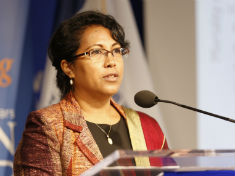 “Even in a weak system without a quality improvement structure, it is possible to support district managers and facility providers to measure and improve quality care,” said
“Even in a weak system without a quality improvement structure, it is possible to support district managers and facility providers to measure and improve quality care,” said 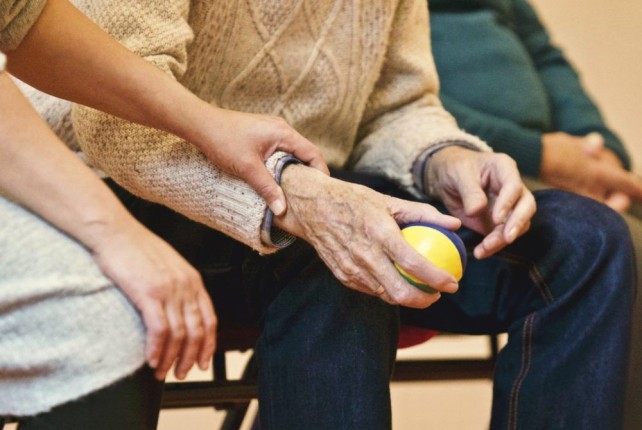
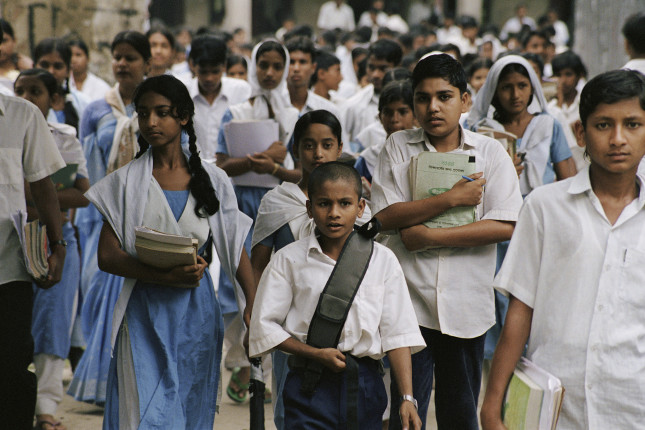
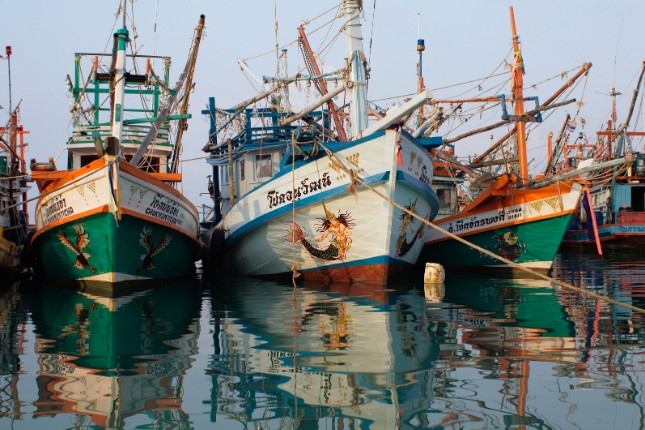
 Can we save the world one condom (or birth control pill) at a time? The third episode of
Can we save the world one condom (or birth control pill) at a time? The third episode of 
